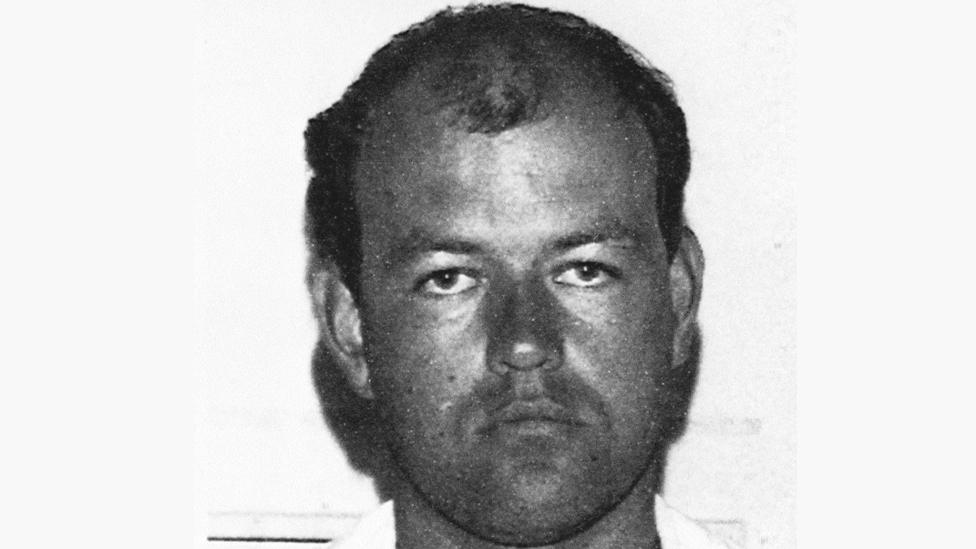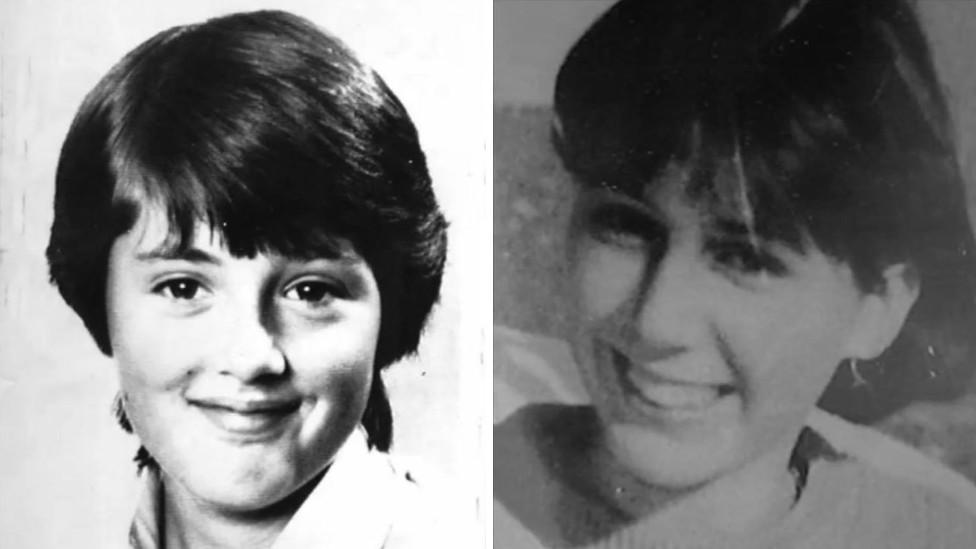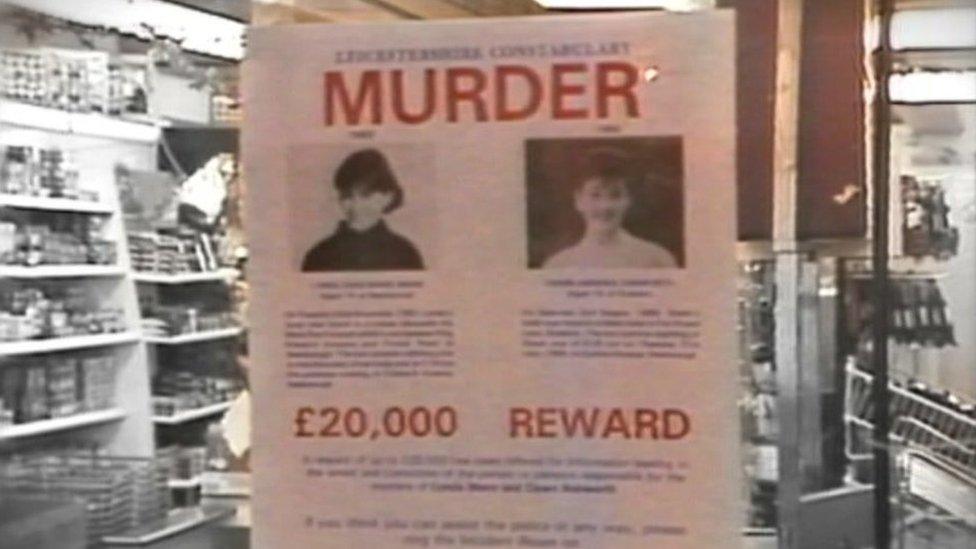Colin Pitchfork recalled to jail after approaching young women
- Published

Colin Pitchfork, now aged 61, spent 33 years in prison for the murders
Double child killer Colin Pitchfork was arrested and recalled to prison because he had been approaching young women, the BBC understands.
He was released two months ago after spending 33 years in jail for murdering two teenage girls in the 1980s.
Since then he is understood to have approached young women on multiple occasions while out on walks from the bail hostel where he was living.
He was arrested after probation staff raised concerns about his behaviour.
Barbara Ashworth, whose daughter Dawn was murdered by Pitchfork in 1986, told the Daily Mail: "It is worrying that he is approaching young women in this manner. It just goes to show that a leopard never changes its spots."
There have also been concerns he had been trying to cheat lie detector tests. The BBC's home and legal correspondent Dominic Casciani has been told he was doing this by using breathing techniques.

Dawn Ashworth and Lynda Mann were raped and murdered by Pitchfork three years apart in the 1980s
Pitchfork was jailed in 1988 for raping and murdering 15-year-olds Lynda Mann and Dawn Ashworth in Leicestershire.
He raped and strangled Lynda Mann in 1983 and did the same to Dawn Ashworth in 1986.
The Ministry of Justice (MoJ) said Pitchfork has not committed any further offences since being released.
However, the step of recalling him is thought to have been taken as a preventative measure due to a concerning pattern in his behaviour.
Dawn Ashworth's uncle, Philip Musson, told BBC Woman's Hour that releasing Pitchfork had been an "ill-judged" experiment.
"The wellbeing of children and families [was] being subject to this experiment," he said.
"I appreciate we can't lock up the vast majority of criminals and throw away the key but there are just one or two who commit such heinous offences against society that they can't be successfully repatriated safely back into society, and he is one of them."
'Reform is necessary'
There was public outcry when the Parole Board deemed Pitchfork to be suitable for release, and even former Justice Secretary Robert Buckland challenged the decision.
Speaking to BBC Woman's Hour after Pitchfork was recalled, he said: "My view bluntly is that he should never have been released, and that's why I raised my concerns back in the summer.
"Frankly I very much hope that we don't see this man being released again."
Current Justice Secretary Dominic Raab is said to be looking at proposals to overhaul the Parole Board, with the findings of a review anticipated next year.
"I think reform is necessary and I think we can do better," Mr Buckland said.
"This case has thrown up, again, a horrific example of how things can go wrong. We need action soon."

Pitchfork was the first person to be convicted of murder using DNA evidence
Pitchfork was subject to an unusually high number of licence conditions. The MoJ said there were more than 40 - including exclusion zones, curfews and polygraph testing - while murderers are usually only subject to about seven.
Pitchfork's case must now be referred to the Parole Board within 28 days.
There will likely be a parole hearing due to the seriousness of the case, rather than considering the circumstances of the recall "on paper", meaning by solely reviewing documents.
The hearing will determine whether Pitchfork should stay in a closed prison, be transferred to an open prison or be released.

Follow BBC East Midlands on Facebook, external, Twitter, external, or Instagram, external. Send your story ideas to eastmidsnews@bbc.co.uk, external.
Related topics
- Published19 November 2021

- Published1 September 2021

- Published22 July 2021

- Published13 July 2021
